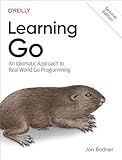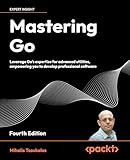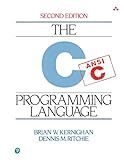Best Books on Golang Programming to Buy in February 2026

Learning Go: An Idiomatic Approach to Real-World Go Programming



Go Programming Language, The (Addison-Wesley Professional Computing Series)



Mastering Go: Leverage Go's expertise for advanced utilities, empowering you to develop professional software



System Programming Essentials with Go: System calls, networking, efficiency, and security practices with practical projects in Golang



THE GO PROGRAMMING LANGUAGE: A Guide to Modern Golang Programming (Sylvanity Essential Dev Book Series)



C Programming Language, 2nd Edition


In Golang, it is possible to pass a function as a parameter to other functions. This allows for extensibility and flexibility in designing code. To pass a function as a parameter, you need to follow these steps:
- Declare a function with the appropriate signature that matches the function you want to pass as a parameter. The signature includes the function name, input parameters, and return type (if any).
- In the function where you want to pass the function as a parameter, declare a parameter of type func followed by the signature of the function you want to pass. For example, if you want to pass a function that takes an integer parameter and returns a string, the parameter declaration would be f func(int) string.
- Call the function by passing the desired function as an argument.
Here is an example to illustrate these steps:
package main
import "fmt"
// Function to be passed as a parameter func addOne(x int) string { return fmt.Sprintf("%d + 1 = %d", x, x+1) }
// Function that takes a function as a parameter func performOperation(f func(int) string, num int) { result := f(num) fmt.Println(result) }
func main() { // Call performOperation and pass the addOne function as a parameter performOperation(addOne, 5) }
In this example, addOne is a function that takes an integer and returns a string. The performOperation function takes a function as the first parameter and an integer as the second parameter. It calls the function passed as the first parameter with the integer passed as the second parameter. Finally, in the main function, performOperation is called with addOne as the first parameter and 5 as the second parameter. The output of this program will be: "5 + 1 = 6".
What is function parameter in Golang?
In Go, a function parameter is a value passed into a function when calling it. It is used to specify the data that a function requires in order to perform its operation. Function parameters are declared in the function signature, and they can have a specified type.
Here's an example of a function with parameters in Go:
func greet(name string) { fmt.Println("Hello, " + name + "!") }
func main() { greet("John") // calling the greet function with the parameter "John" }
In this example, the greet function has a parameter name of type string. When calling the greet function in the main function with the argument "John", the value "John" is passed into the name parameter of the greet function.
How to pass a function with multiple return values as a parameter in Golang?
In Go, you can pass a function with multiple return values as a parameter by defining the function signature using a type alias, and then passing the function by its type.
Here's an example:
package main
import "fmt"
// Define a function signature using a type alias type myFunc func() (int, string)
// Function with multiple return values func getData() (int, string) { return 42, "Hello, World!" }
// Function that accepts a function with multiple return values as a parameter func printData(f myFunc) { num, str := f() fmt.Println(num, str) }
func main() { // Pass the getData function as a parameter to printData printData(getData) }
In this example, we define a type alias myFunc for a function that returns an integer and a string. We then define a function getData() that returns the values 42 and "Hello, World!". The printData() function accepts a function of type myFunc as a parameter and calls it, printing the returned values.
Finally, we call printData() and pass the getData function as the argument. The getData function matches the signature of myFunc, so it can be passed as a parameter.
When you run this code, it will output:
42 Hello, World!
This demonstrates how to pass a function with multiple return values as a parameter in Go.
What is function declaration in Golang?
A function declaration in Golang is a way to define a function with a specific name, input parameters, and return types. It is the basic building block of a Go program and is used to encapsulate a piece of code that performs a specific task.
In Golang, a function declaration begins with the keyword func, followed by the function name, a pair of parentheses that may contain input parameters (each parameter consists of a name followed by its type), and finally the return type(s). Here is the general syntax:
func functionName(param1 type1, param2 type2) returnType { // function body }
For example, a function declaration for a simple addition function that takes two integer parameters and returns their sum would be:
func add(a, b int) int { return a + b }
In the above declaration, add is the name of the function, (a, b int) is the input parameters (both of type int), and int is the return type.
Once a function is declared, it can be called or invoked from other parts of the Go program to execute its code and return the specified result.
How to use a function as an argument in Golang?
In Go, you can pass a function as an argument to another function by defining the function signature and using it as a parameter type. Here's an example:
package main
import ( "fmt" )
// Define a function type type operation func(int, int) int
// Function that takes another function as an argument func calculate(x int, y int, op operation) int { return op(x, y) }
// Function to add two numbers func add(x int, y int) int { return x + y }
// Function to subtract two numbers func subtract(x int, y int) int { return x - y }
func main() { // Pass the 'add' function as an argument result := calculate(10, 5, add) fmt.Println("Result of addition:", result)
// Pass the 'subtract' function as an argument
result = calculate(10, 5, subtract)
fmt.Println("Result of subtraction:", result)
}
In this example, we define a function type called operation that takes two integer arguments and returns an integer. The calculate function takes two integer arguments x and y, as well as a function of type operation. It then calls the function passed as an argument with the x and y values.
In the main function, we create two functions add and subtract that satisfy the operation function type. We then pass these functions as arguments to the calculate function, along with the required integers. The result is printed for each operation.
Note that you can also define the function signature directly in the argument of the function, without creating a separate type, if it's only used in that specific function.
What is a function pointer in Golang?
A function pointer in Go is a variable that holds the memory address of a function. It allows a function to be assigned to a variable and passed as an argument to another function or called directly. Function pointers are useful when you want to dynamically switch between different functions at runtime or store functions in data structures. In Go, function pointers are implemented using the type func followed by the parameter types and return type of the function.
